Students choose Edinburgh Business School’s MBA programme at Heriot-Watt University Dubai for its engaging course structure, guided study, and its proven ability to greatly enhance student career prospects.
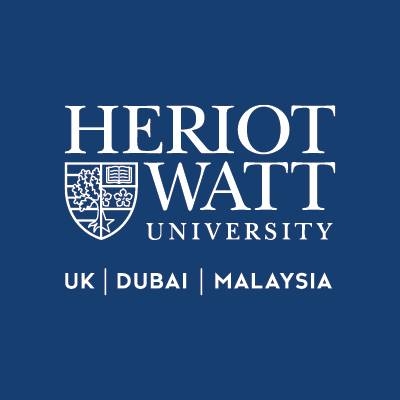
The School has been offering its MBA programme in Dubai for 15 years now. Fully licensed by the Knowledge and Human Development Authority (KHDA), the MBA programme can be completed through a full-time or part-time pathway at Heriot-Watt University’s campus in Dubai.
Why study with Edinburgh Business School?
We area globally recognised institution with an international perspective – and that’s reflected throughout the School. Students will share a classroom with like-minded individuals and join our growing network of global business professionals.
Our seminar structure gives students the opportunity to share their experiences, exchange knowledge and learn from fellow students, creating a rich learning environment - taught with a student’s career in mind, Edinburgh Business School's MBA programme is led by experts in finance, strategy, marketing and business.
Every programme at the School has been created and written by a leading faculty or an external expert. Our faculty teach regularly across campuses in Dubai, Edinburgh and Malaysia.
The programme consists of seven core courses and two electives. For electives, students can choose from an extensive range of self-study courses. Please refer to the course content section below for more details.
Students will be provided with all the relevant study materials, plus access to the student portal.
Tutored interaction for each course will take place over weekends (Saturdays and Sundays), and a large amount of each student’s time will be spent studying independently, with approximately 200 hours per course.
How the programme is delivered
Full-time MBA programme
The full-time MBA programme starts in September and January of each year. The programme runs over one year, and each year is split into three semesters. Each semester you will do a minimum of two core courses.
You will typically attend:
Four 2-day seminars (Saturday and Sunday) led by an Edinburgh Business School faculty member. The seminars include simulations, case studies and class discussions
Two 2-day revision sessions (Saturday and Sunday) to prepare you for your exam.
These seminars allow a dynamic combination of students with diverse experiences, backgrounds and cultures to share and exchange knowledge in a rich learning environment.
Part-time MBA programme
You can start your part-time MBA journey in January or September. The programme runs over two years, and each year is split into three semesters. Each semester you will do a minimum of one core course.
You will typically attend:
Two 2-day seminars (Saturday and Sunday) led by an Edinburgh Business School faculty member that includes simulations, case studies and involves class discussions
One 2-day revision session (Saturday and Sunday) to prepare you for your exam.
These seminars allow a dynamic combination of students with diverse experiences, backgrounds and cultures to share and exchange knowledge in a rich learning environment.
MBA with Specialism
MBA with Specialism in Finance
MBA with Specialism in Strategy
MBA with Specialism encompasses the same seven core courses of the standard MBA, but instead of the two elective courses, you take four specialist courses in your specialist subject. Students have the option to study the seven core courses on our campuses, and complete the specialism by studying the four specialist electives by distance learning.
Course content
Throughout your MBA studies, you will have unlimited access to all study materials needed, including interactive course websites. To complete the programme, you must pass seven core courses and two electives.
MBA core courses
The MBA’s core courses, whether completed part-time or full-time, are:
Delivering Successful Projects
Economics for Business
Financial Decision Making
Leadership, Theory and Practice
People, Work and Organisations
Strategic Marketing
Developing and Executing Strategy
Delivering Successful Projects
Delivering Successful Projects equips managers and business professionals with knowledge, understanding and skills to manage projects using integrative concepts, tools and techniques.
The course opens by setting the mind-set for project decision-making and covers the fundamental concepts of the project management discipline and how it assists organisations in materialising their strategic and change objectives.
Topics include:
Projects in the organisational context
Leadership and behavioural aspects of human resources
How the project manager and the project team work
Project success criteria
Qualitative and quantitative planning and control processes
Project conclusions, strategic intent, final evaluation and reporting.
The course concludes with a closer look at current topics trending the project management profession, such as the project management office function, ethics, sustainability and agile project management.
Explores the nature of a firm’s response to the challenges of internationalisation by examining the strategic basis, method and direction of international strategies. Examines both multi- and micro-nationals and utilises conventional strategic tools to study international strategies.
Economics for Business
Economics for Business examines how companies compete by developing and understanding the interactions and relationships between theoretical concepts; examining the individual components of strategic management models; and considering how companies may achieve and sustain competitive advantage.
The course starts by outlining fundamental economic concepts and examining the workings of the market system. Different market structures and their impact on organisations are reviewed and the role of government in the economy is examined.
Relevant aspects of the macro-economy are introduced with a focus on business impact and decision-making. This is followed by an exposition of international economic issues.
Topics include:
The Role of Economics in Business
The Market Mechanism
Demand
Supply
Market Structure
Factor Markets
The Role of Government
The Macroeconomic Environment
Macroeconomic Policy
International Trade and Globalisation
Research Activity.
The course ends with a research activity that will pull all the strands of the course together, and prepare students fully for the assessment.
Financial Decision Making
Financial decision making aims to provide students with a set of accounting and financial tools that enables them to interpret and critique financial information from a variety of sources, and to make informed and effective financial decisions that directly impact company operations.
The course begins with a closer look at the current financial landscape. It then examines the application of financial and management accounting tools relevant to critical financial decisions, including key performance indicators, breakeven analysis, working capital management techniques and the budgeting process.
This is followed by a consideration of financial management and the decisions faced by organisations on investment (what projects), finance (what type of finance) and dividend (pay or retain) and how an organisation analyses takes action on each of those decisions.
Topics include:
The financial landscape
Financial accounting
Working capital management
Management accounting
Budgeting
Financial tools
Capital budgeting and investment appraisal
Financing, payout policy and management.
The course concludes with an introduction to exchange rate and interest rate risk management.
Leadership Theory and Practice
The course critically examines the concept of leadership in organisations, explores major theoretical developments in how leadership is understood and provides opportunities for managers to reflect on real-life leadership issues.
The course is divided into eight modules. Having explored what we mean by ‘leadership’ in the first module, the course then considers key developments in leadership theories and how they apply to modern organisations.
Leadership is enacted differently depending on the context, and the course hones in on some example settings for practice, including creative industries and projects, to explore alternative approaches to leading.
The role of leadership in setting and shaping organisational strategy is also explored, and contemporary issues of gender, culture and ethics are discussed.
Topics include:
Introduction to leadership
Traditional and contingency leadership approaches
Modern theories of leadership
Post-heroic leadership
Leadership in contexts
Leadership, gender and culture
Leadership and ethics
Developing leadership
The course ends by considering how leaders and leadership can be developed and provides insights into current trends and future directions.
People, Work and Organisations
Our People, Work and Organisations course aims for students to develop a detailed appreciation of factors influencing how people behave at work and how these link to performance.
The course focuses on understanding individual differences, how these differences affect group dynamics and how organisational factors affect individual behaviour. At its core, the course aims to equip students with the skills and knowledge to positively impact on individual, team and organisational performance in a variety of dynamic organisational contexts.
Topics include:
Understanding behaviour in organisations
Individual differences
Motivation and engagement
Work group dynamics
Power, politics and conflicts
Designing effective organisations
Organisational culture
Organisational change.
The course concludes with a detailed case study that allows students to draw on their knowledge of organisational behaviour and recommend interventions to improve performance. Throughout the course, students are encouraged to think critically about their role as managers and to reflect on their practice in light of relevant theory.
Strategic Marketing
Our strategic marketing course aims to provide students with the necessary tools and frameworks to enable them to make proactive marketing decisions. The philosophy underlying this course is that marketing-oriented companies put customers first, are geared for long-term success and that this orientation must be championed by top management and infused throughout the whole organisation.
Strategic marketing requires knowledge, skills and competencies in a range of techniques such as strategic analysis and planning, implementation – via a number of integrated and synergistic marketing functions and activities – and marketing control, aided by an array of marketing metrics and digital developments.
Topics include:
Marketing management for a turbulent era
Marketing fit with corporate and business strategies
Marketing environmental insights
Customer insights and customer connections
Marketing insights for demand measurement
Segmentation and target marketing
Branding and positioning
Marketing strategies for competitive and market scenarios
The integrated marketing mix
Organising, planning, delivering and measuring market performance.
This course aims to provide students with a strong grasp of both the strategic elements of establishing a long-term customer orientation and the operational techniques that are required of marketing managers to implement a strategic marketing orientation successfully.
Developing and Executing Strategy
Successful business planning needs objectives to be set and strategies to be created, implemented and measured. This course covers the core areas of strategic management and uses the general management setting to integrate ideas across the core disciplines covered in other MBA core courses.
Developing and Executing Strategy begins by examining the evolution of management and academic thinking around strategy and strategic management over the past 50 years, reviews the diversity of contemporary strategy theory and practice and examines the role of strategy in the management of different types of organisations.
The course then examines a variety of aspects of strategy, such as strategic intent, analysis, strategic options and implementation. At each stage the links with other management disciplines, such as leadership, organisational behaviour, economics, marketing and finance are considered. Finally an integrative framework for strategic decision-making is presented, which facilitates a holistic approach to complex business and management issues.
Topics include:
Introduction to Strategy and Strategists
Strategic Intent
Strategic Issue Diagnosis
Interpreting and Analysing the Environment
Analysing the Organisation
Generating, Selecting and Evaluating Strategic Options
Strategy Implementation and Practice
The course encourages students to think and operate at the strategic level in a range of dynamic settings through integration of ideas across core business disciplines.
Entry requirements
Admission to the MBA programme is by application and acceptance.
You're expected to have:
A recognised first- or second-class honours degree, or a qualification deemed to be equivalent by Heriot-Watt University
A minimum of two years' post-qualifying full-time professional work experience.
English language requirements
Where English was not the medium of instruction at Undergraduate studies, applicants must demonstrate English language proficiency equivalent to IELTS 6.5 (with all elements passed at 6.0 or above). Documentary evidence from the University where the candidate had studied their bachelor degree will be required to state that the medium of learning and teaching throughout their years of study was English.
Heriot-Watt University Dubai offers an extensive range of research-informed degree programmes in a global study environment, with strong links to business and industry.
We were founded in 1821 as the world's first mechanics institute. In 1966 we were granted University status by Royal Charter.
Heriot-Watt University Dubai Campus is a satellite campus of Heriot-Watt University based in Dubai, United Arab Emirates. Established in 2005, it was one of the first campus of an overseas university to open in Dubai International Academic City. After 180 years' provision of world-renowned education in the UK, Heriot-Watt was invited to Dubai to provide specialised programmes in the fields of management, engineering, built environment, food science and fashion.
With a history dating back to 1821, we have a long tradition of excellence and a proven track record in educating, inspiring and challenging the professionals of tomorrow. We are one of the top UK universities for business and industry and have an established reputation for world-class teaching and practical, leading-edge research.
We have been consistently ranked among the top providers' of higher education across a number of key university ratings and rankings. From our research performance to student satisfaction, graduate employability and the quality of our teaching, Heriot-Watt University Dubai Campus' status as one of the world-class university has been confirmed by several independent bodies.
New Dubai Campus
In 2019, Heriot-Watt signed a 10-year lease for a brand-new 218,000 sq. ft campus in Dubai Knowledge Park, thereby building on its commitment to deliver high quality education and research in Dubai. Staff and students moved to the new campus in January 2021 – the same year Heriot-Watt celebrates its founding bicentenary.
This move marks a historic milestone for the University and ensures students will enjoy the benefits of an enriched learning experience and outstanding graduate outcomes for many years to come. The move is a key part of delivering Heriot-Watt’s ambitious six-year strategy for the University and demonstrates our commitment to the region and growth plans for the future.
The modern campus is set to enhance further the student experience with a digitally enabled learning environment supporting the delivery of the University’s portfolio of programmes including data science, computing and AI, business, accounting and finance, psychology, architecture and design, construction and engineering. It will include a dedicated student hub, a central student services centre, enhanced library and social learning spaces, as well as a wide range of digitally enhanced classrooms, seminar rooms, studios, and laboratories. The University’s in-house recording studios will also allow the creation of digital materials for a more engaging and interactive learning experience.
Dubai Knowledge Park is adjacent to Dubai Media City and Dubai Internet City, and holds more than 500 businesses and has established itself as a centre of excellence for higher education and professional development. The new business and enterprise locale will generate increased opportunities for students to engage directly with business and industry, providing graduates with unique learning experiences.
Our accolades
Since its establishment, Heriot-Watt University Dubai has won several laurels. In 2019, it was named one of Dubai's top universities and awarded five stars in the first ever quality rankings undertaken by the Knowledge and Human Development Authority (KHDA), the supreme educational quality assurance and regulatory authority of the Government of Dubai. The rating system, developed in conjunction with QS, evaluates universities on eight quality indicators: Teaching, Employability, Research, Internationalisation, Facilities, Overall Programme Strength, Well-being, Social Responsibility and Inclusiveness. Heriot-Watt University was one of just three Universities to be awarded five stars.
In the same year, the campus was crowned the 'Best University' at the first ever Forbes Middle East Higher Education Awards. Held in Dubai, the awards recognise and celebrate the region's finest higher education institutes based on votes from students, teachers and the businesses that work with them.
Burj Khalifa light show
Heriot-Watt University became one of the first University in the UAE to light up the world's tallest building – the Burj Khalifa – in a historical celebration on 26 November 2019. The celebration was in support of the many milestones the Dubai campus had achieved: Heriot-Watt University was awarded five stars by the KHDA, it was also crowned the 'Best University' at the first ever Forbes Middle East Higher Education Awards and it announced its move to a new campus.
At exactly 8.23 pm, the Burj Khalifa was lit up with imagery that reinforced Heriot-Watt's position as a world-class Institution as well as showcasing its achievements. A one-minute-long film featuring James Watt, highlighted the University's two biggest accolades this year, namely the awards from KHDA and Forbes Middle East.
It celebrated the Dubai campus' distinguished academic record in subjects including engineering, business, construction, design and computer science and the heritage of Heriot-Watt since its inception in 1821. At over 828 metres (2,716.5 feet) and more than 160 storeys, the Burj Khalifa is an iconic skyscraper gracing the skyline of Dubai and one of the best-known symbols of modern UAE.
Top quality British education
We pioneered British education in Dubai, with highly acclaimed degree programmes that meet the specific demands of local business and industry. With strong links to industry and business, we pride ourselves on developing and educating future leaders, managers and innovators. With many of our programmes recognised by the relevant professional associations and institutes, a Heriot-Watt University degree is professionally valued.
Our degrees are also accredited and approved by Royal Charter in the UK. Our programmes include the option to transfer and undertake part of your degree at our home campus in Scotland. Heriot-Watt graduates are highly sought after by employers worldwide, and our 77,000 alumni working in key positions around the globe are testament to our success.
(Institute Review)
55 years ago(Institute Review)
55 years ago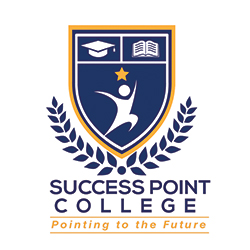
This is a unique MBA degree program that provides you an opportunity to get a prestigious degree from the UK.

We are excited to invite you onto our course, held at our state of the art facilities.
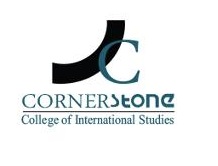
This MBA degree program will develop your knowledge in key business areas and functions and explain its relationship with the international environment and strategic role-play required to understand business operations and management.
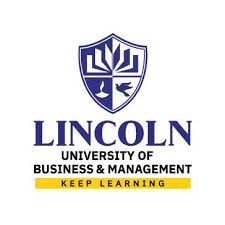
The MBA program in International Management is designed to deliver an in-depth understanding of the business environment today.
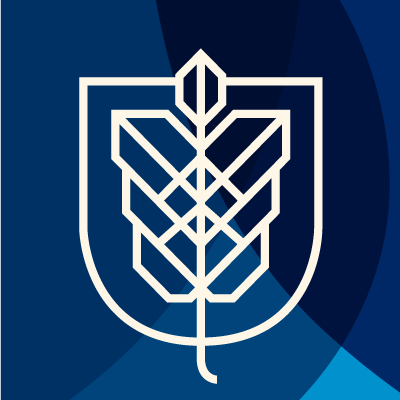
Gain skills that are at the center of value creation, from startups to global enterprises, and learn to devise and deliver new products and services through a no-nonsense, metrics-driven approach.
© 2025 www.coursetakers.ae All Rights Reserved. Terms and Conditions of use | Privacy Policy